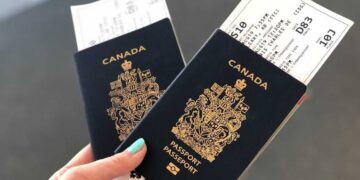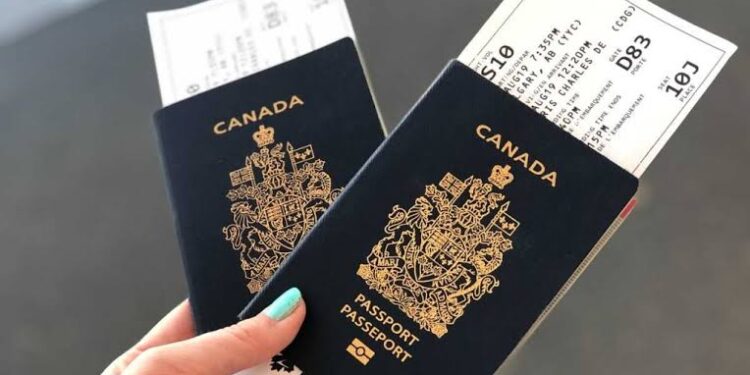By John Ikani
Plans by Nigerians and nationals of other countries seeking to migrate to Canada has hit a roadblock, as the Great White North moved to suspend its express entry visa programme for the first half of 2022.
The suspension of express entry visa programme was contained in an internal memo from Immigration, Refugees and Citizenship Canada (IRCC).
According to the memo, “An estimated 76,000 applicants are in the inventory for federal high-skilled worker applications, which is more than what the government needs to meet targets all the way out to 2023.”
As such, new Express Entry draws for Federal Skilled Worker (FSW), Canadian Experience Class (CEC), and Federal Skilled Trades (FST) will be suspended in the first half of 2022.
The document added that FSW processing times may increase to 36 months and that all through 2022, overall immigration targets for Express Entry candidates may decrease by about 50 per cent.
The document also notes the possible increase in Canada’s Comprehensive Ranking System cut off mark when the regular draws begin, spanning at least six months.
“Given the current composition of the pool, the minimum Comprehensive Ranking System (CRS) score necessary to receive an invitation to apply would likely rise above 500 and remain high, regardless of whether invitations are further paused, or resume at a modest pace in the very near term. In both scenarios, the CRS score would likely remain high for approximately six months,” the document said.
What you should know
Canada’s latest suspend express entry visas follow a policy made in 2021 to initially relocate 20,000 Afghans to the country. The pledge had been doubled to 40,000 Afghans.
The National Post reports that 7,000 Afghans have arrived in Canada.
As a result of its large land mass and small population, Canada has had open and flexible migration plans to help spur its economic growth. The country seeks to welcome over 1.2 million new immigrants in 3 years, cutting across various immigration classes.
Termed “Japa Movement” in local parlance, the mass migration of young Nigerians to greener pastures has become popular amid harsh socio-economic challenges besetting the nation.
Data collated by Nairametrics show that over 18,000 Nigerians have received permanent residency between 2018 and 2020. The report noted a record high of 401,396 immigrants in 2021.



































